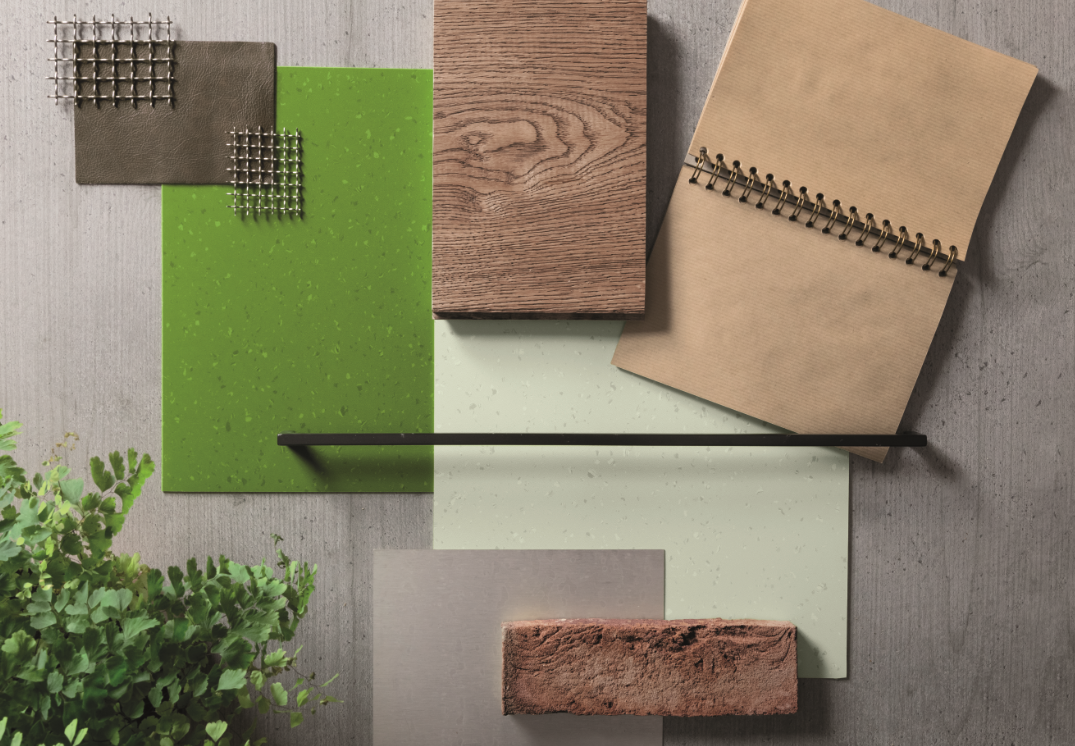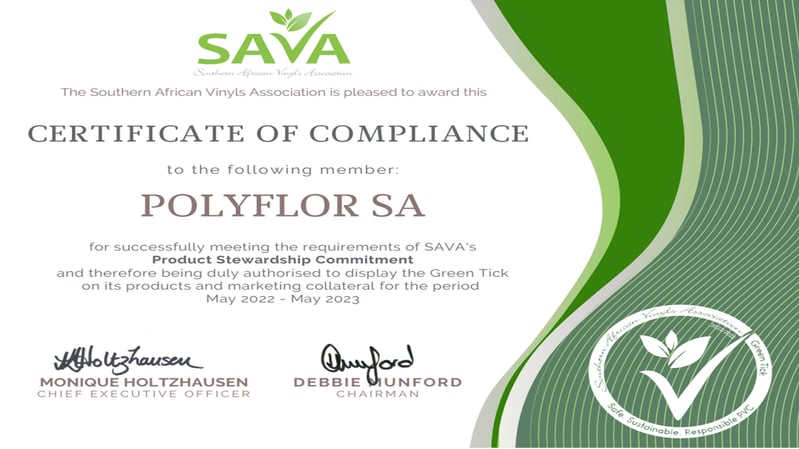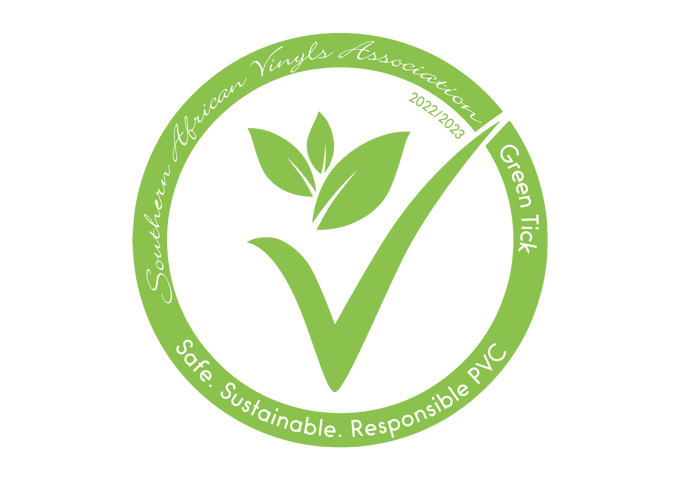Historically, vinyl flooring has developed an unwarranted reputation as being environmentally unfriendly.
However, Polyflor vinyl flooring products are proof that this is not always the case.

Polyflor is proud to be rated with higher sustainability standards than most, with a host of green certifications from the UK and other worldwide certification bodies. Polyflor South Africa will only offer the highest quality products, which have earned the stringent local Green Tick certification (formerly Vinyl dot) , by the Southern African Vinyl Association (SAVA), certifying complete adherence to the SAVA Product Stewardship Commitment. This certification is proof that these products are responsible, safe and of the best quality.

As part of our commitment to ensuring environmentally sustainable products, our “cradle to cradle” approach addresses the real questions around vinyl flooring.
Here is what our analysis and insights have delivered in the vinyl space.
1. Sourcing raw materials
Sustainable manufacturing starts with the responsible selection of raw materials and Polyflor vinyl flooring products contain up to 85% natural materials that are 100% recyclable.
Vinyl is made up of 57% salt (chlorine) and 43% oil (ethylene), salt being one of the world’s most abundant natural resources. All raw materials used in the manufacture of Polyflor vinyl flooring are sourced from responsible, ethical suppliers and purchased in bulk to minimise logistics. Like Polyflor, their suppliers are ISO 14001 certified or demonstrate robust environmental management.
2. The manufacturing process
Vinyl is exceptionally energy efficient to produce and requires at least 15% less energy than linoleum and 50% less energy than ceramics. Embedded energy is further reduced when recycled material is used in place of raw materials. Polyflor follows the strictest industry regulations ensuring no harmful substances such as formaldehyde, lead, cadmium, mercury or hexavalent chromium are included in their vinyl.
The carbon footprint of vinyl is equivalent to that of roasted cornflakes!.
3. Packaging
Polyflor flooring is packed in the most effective manner to provide the necessary protection whilst minimising waste. Recycling of various elements of their packaging waste is organised on site, with recycled packaging used where possible
4. Distribution & Transportation
Mindful logistics processes are strictly followed to minimise impact.
5. Installation
Polyflor continues to develop and improve installation methods for its flooring ranges, with increased use of solvent-free adhesives and adhesive-free vinyl flooring, such as Camaro Loc, Expona SimpLay, Architex, Secura and Designatex. The added benefit of adhesive-free flooring is the ability to recycle and re-use the product.
6. Maintenance
Most Polyflor products are designed with low-maintenance features including a PUR reinforcement coating which ensures superior cleaning benefits, enhanced protection and optimum appearance retention. The PUR coating is environmentally sustainable, ensuring less use of energy, polish, water and cleaning chemicals.
7. Durability
Vinyl offers excellent durability. The longer a product lasts, the less energy and resources are needed to manufacture, deliver and install a replacement. The lifecycle of vinyl is generally 20-25 years but can last much longer with the correct maintenance regime.
8. Disposal of the product
We are dedicated to optimising recycling and building sustainability awareness across the value chain and initiated a first-of-its-kind recycling programme for vinyl off-cuts. We are also currently piloting a process to include contaminated rip up.

Download Polyflor’s Sustainability eBook here.